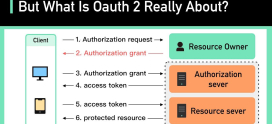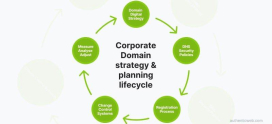
Why Domain Names Are More Important Than You Think
Have you ever thought about how crucial a domain name really is? You might think of a domain name simply as an address on the internet, something you type into a browser to find a website. But what if I told you that it’s much more than that? Your domain name is the digital identity of your brand or business, a representation of who you are in an incredibly crowded online marketplace. With millions of websites fighting for attention, a strong domain name can be the difference between success and obscurity.
Are you struggling to understand how to choose the right domain name? Or perhaps you’ve already chosen one but are unsure if it’s helping or hurting your online presence? You’re not alone. Many people face these challenges, and the good news is, you’re in the right place! Let’s dive into the world of domain names, why they matter more than you think, and what you can do to make the best choice for your online journey.
What is a Domain Name?
A domain name is like a physical address for your home, but in the virtual world. Instead of a number on a street, it’s a unique string of characters that leads others to your website. Think of it as your online branding. Just as you want people to remember your home address, you want them to remember your domain name.
Why is Your Domain Name Your Online Identity?
When you think about it, your domain name portrays your business or personal brand. It’s often the first impression you make on potential customers. Here are some reasons why it’s your online identity:
- Brand Recognition: A memorable domain name helps in building brand recognition.
- Professionalism: A custom domain name gives a more professional feel than a free subdomain.
- SEO Benefits: Including keywords in your domain can improve your search engine optimization.
Choosing the Right Domain Name
The process of selecting a domain name can be daunting. Consider it like naming a baby; you’ll want something meaningful, easy to remember, and something that won’t go out of style. Here are a few practical tips:
Keep It Short and Simple
A short and straightforward name is easier to remember. Avoid complicated spellings that might confuse visitors.
Consider Your Brand
Your domain name should reflect your brand’s identity. Think about what you want your customers to feel when they hear your name.
Use Relevant Keywords
If possible, incorporate keywords related to your business. This not only helps with SEO but also gives visitors an idea of what you offer at first glance.
Choose the Right Extension
The most common domain extension is .com, but many other options exist, such as .net, .org, and .info. Choose a domain extension that fits your business type.
The Impact of a Poor Domain Name
Choosing the wrong domain name can have serious repercussions. It could be simply a case of confusion or might lead to lost customers. Here’s what a poor domain name may impact:
- Brand Credibility: A name that’s hard to spell or understand can give off an unprofessional vibe.
- Loss of Traffic: If your domain is confusing, customers might accidentally visit a competitor’s site.
- SEO Issues: A generic or irrelevant name can hurt your search visibility.
Domain Security: More Essential than You Think
When securing a domain name, consider it an investment in the future of your business. The type of domain you choose can affect your online security.
Protecting Your Name
Many companies offer domain privacy protection which hides your contact information from the public, preventing spam or potential threats.
Preventing Domain Hijacking
Domain hijacking is when someone illegally takes control of a domain name. Choose a reputable registrar like DarazHost, which offers robust security features.
Domain Names and Your Business Strategy
A domain name is not just a technicality, it’s a part of your business strategy. Here’s how:
- Building Trust: A professional domain name fosters trust with your audience, making them feel more comfortable engaging with your brand.
- Marketing Tool: Your domain can serve as a marketing tool, steering SEO efforts toward increased visibility.
- Expanding Your Reach: A strategic domain name can help expand your audience base, attracting more visitors.
FAQs
What makes a good domain name?
A good domain name is short, easy to spell, relevant to your brand, and memorable. It should ideally have a .com extension for maximum recognition.
Can I change my domain name later?
Yes, you can change your domain name later, but it might affect your SEO and overall brand presence. If you must change it, consider careful planning and informing your customers.
How long should I register my domain name for?
It’s best to register your domain name for at least one year, but consider a multi-year registration for security.
What happens if my domain name expires?
If your domain name expires, it can be purchased by someone else. You might lose your online presence and potentially damage your brand.
How can I improve my domain security?
Utilize features like domain privacy, two-factor authentication, and secure hosting services, such as DarazHost, to enhance your domain security.
Conclusion
As you can see, a domain name is far more than just an online address; it’s the cornerstone of your digital presence. From brand recognition to security and customer trust, it influences every aspect of your online experience. So, whether you are launching a business or pursuing a personal project, take the time to choose a domain name that resonates with your identity. Remember, in the vast sea of the internet, your domain name is your lighthouse. Make it shine bright!









